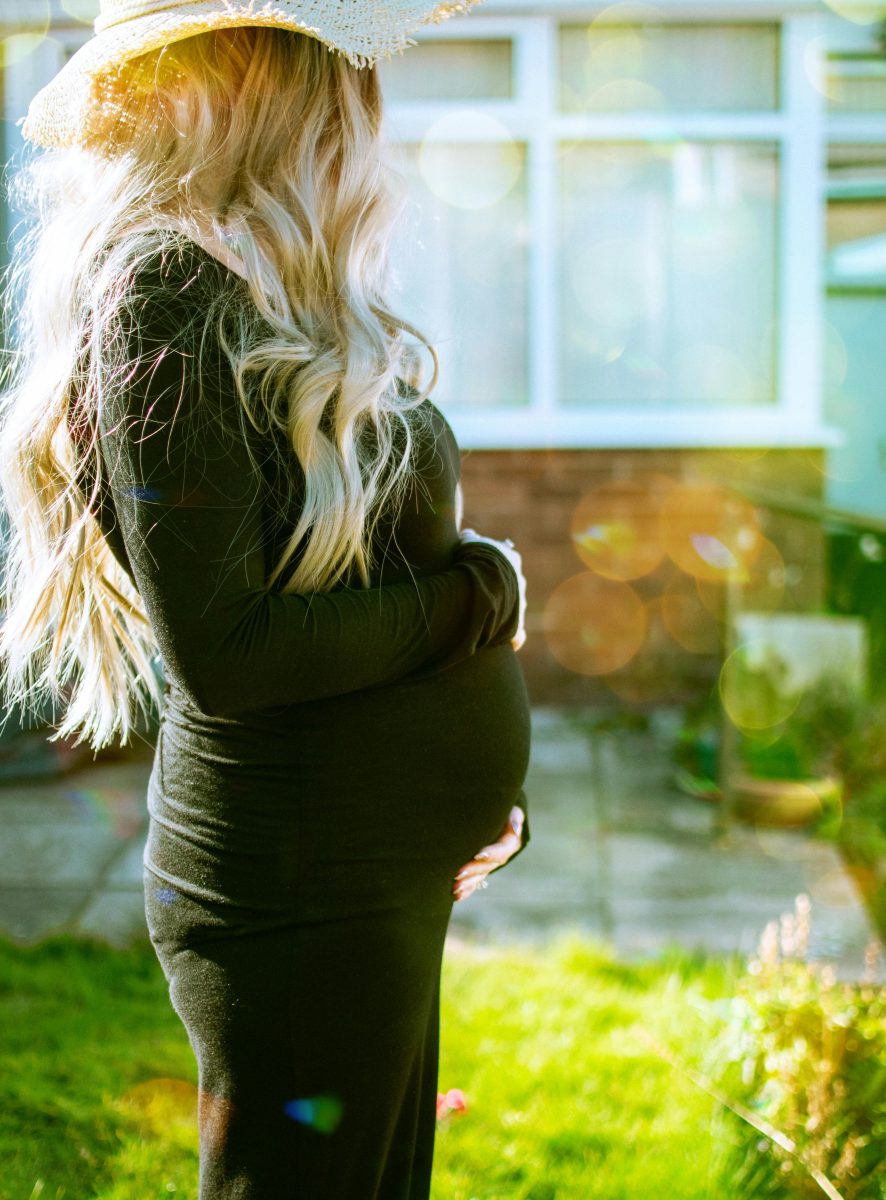
Written by Linda Hollenberg
As I think is the case with many parents, it was only when I realised that my daughter is Autistic that it occurred to me that Autism explains so much about my life experiences too. Yet, from the very beginning of my pregnancy, motherhood presented me with a series of sensory and other challenges that exceeded my capacities and exhausted my coping strategies.
In this piece, I wish to share some of my experience as a mother and a doula as well as some practical tips to help overcome some of the challenges during pregnancy, birth and postpartum.
Before I became pregnant with my daughter, I had only heard of hyperemesis gravidarum (HG) – or extreme morning sickness – in media reports about the Duchess of Cambridge. Just a couple of weeks after my first positive pregnancy test, the nausea and vomiting took over my life. The whole world felt as if it was moving and the sickness was unrelenting.
My sense of smell became so heightened that I couldn’t tolerate the smell of my own body, let alone my husband’s, and I certainly couldn’t go into the kitchen, let alone tolerate food. I was confined to lying as still as possible in the darkness of my bedroom. I couldn’t even look at a screen or book to entertain myself. I was anxious and depressed.
In hindsight, through the lens of now understanding that I am Autistic, I realise that sensory overwhelm had a significant role in almost all of my symptoms. My vestibular sense told me I was constantly moving, my sense of smell told me I was surrounded by sickening odours, my sense of sight told me that light and certain colours were making me ill, and my interoceptive sense was having trouble coping with dehydration and the influx of different hormones. I recently read a study* into the experiences of Autistic mothers and, while it was a very small sample, over 80 per cent of them experienced HG. Although I didn’t experience it myself, some Autistic mothers also find the sensation of their baby moving to be very overwhelming.
Despite reading ALL the books and doing ALL the childbirth preparation, hypnobirthing and active birth courses during my pregnancy (can you tell that motherhood is my special interest?), when it came time to give birth, everything I knew went out the window.
When I arrived at the birthing centre in labour, I essentially went into shutdown. My pain, which had been manageable until that point, intensified to an unbearable level and my ability to communicate deserted me. All I could do was to lie in a foetal position and moan.
In early labour at home, I had been using heat packs on my back, but the birthing centre wouldn’t let my husband warm them in the microwave. The midwife kept encouraging me to try different positions, but I didn’t want to move. I tried the birthing pool, but immediately became hot and claustrophobic and needed to get out. I tried the gas, but I couldn’t follow the midwife’s instructions about how to breathe through the valve and it did nothing. I ended up having an epidural, which I had wanted to avoid due to being terrified of needles, but in the circumstances I didn’t even feel the needle and it made my birth experience so much more pleasant!
In postpartum, I was hypersensitive to my daughter’s cries, touched-out, in pain and exhausted. I cried a lot and my mood was generally quite low. I also experienced a decline in executive functioning, which made it very difficult to keep on top of household tasks and even pack my bag to leave the house.
I found attending parents’ group to be extremely overwhelming with the noise of all the babies (mine in particular was always unsettled), the busy environment and the social expectations. Most of the time I was in a very vague headspace, where I wasn’t fully present and unable to engage with the other mums. I actually felt like this for many years whenever I was expected to split my attention between my daughter and socialising.
After having my daughter, I trained as a perinatal yoga and mindfulness teacher and postnatal doula because I wanted to support other mothers through their motherhood journeys.
Since realising that I am Autistic and studying Reframing Autism’s Certificate in Autistic Wellbeing, I am working towards exclusively nurturing Autistic and otherwise neurodivergent mothers.
Writing from my perspective as both an Autistic mother and doula, here are some practical tips to help overcome some of the challenges during pregnancy, birth and postpartum.
For more support in navigating pregnancy, childbirth and motherhood, you can follow Linda at Yoga Mindfulness Motherhood on Instagram or Facebook.
* ‘A Qualitative Exploration into the Sensory Experiences of Autistic Mothers’ by Moyna Talcer, Orla Duffy and Katy Pedlow

The Reframing Autism team would like to acknowledge the Traditional Owners of the lands on which we have the privilege to learn, work, and grow. Whilst we gather on many different parts of this Country, the RA team walk on the land of the Awabakal, Birpai, Whadjak, and Wiradjuri peoples.
We are committed to honouring the rich culture of the Aboriginal and Torres Strait Islander peoples of this Country, and the diversity and learning opportunities with which they provide us. We extend our gratitude and respect to all Aboriginal and Torres Strait Islander peoples, and to all Elders past and present, for their wisdom, their resilience, and for helping this Country to heal.